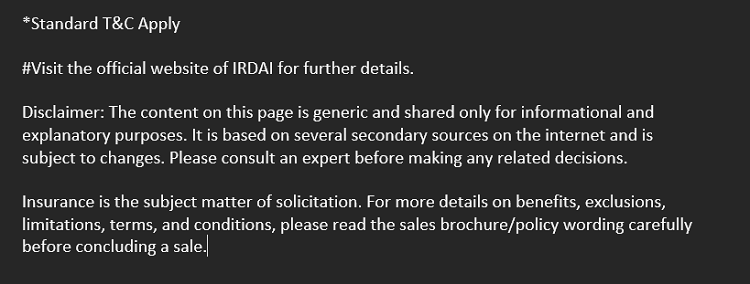The Indian insurance sector simplifies products and services to enhance customer experience, replacing technical jargon with straightforward terms. This shift empowers policyholders to make informed decisions and embraces digitalisation, making the industry more customer-friendly with contributions from traditional providers and InsurTech businesses. In the context of the evolving Indian car insurance market, the importance of third-party insurance becomes evident, providing liability coverage for damages or injuries caused to a third party by the insured vehicle. Claims are subject to terms and conditions set forth under the motor insurance policy. *
Opting for a zero dep in car insurance ensures the policyholder receives comprehensive coverage without factoring in depreciation, offering greater financial protection for the insured vehicle.
Table of Contents
Autonomous Cars
In India, current automatic cars are rudimentary compared to the highly automated vehicles tested by companies like Google and Tesla Motors. Introducing driverless cars won’t obliterate the online car insurance market despite the potential impact on accident rates. Instead, it may alter the landscape by reducing accidents while requiring coverage against theft and natural disasters. The implications for insurers lie in adapting policies to address the evolving risk dynamics of autonomous driving. You can use a car insurance premium calculator to estimate the costs of premiums to be paid.
Electric Vehicles
Rising fuel costs and environmental considerations propel the car industry towards electric vehicles (EVs). However, challenges like limited charging stations and potential fire risks from rechargeable batteries in accidents require attention. Insurers must evaluate damage and costs associated with advanced components in EV accidents. As EVs become more common, insurance providers must adequately adjust strategies to cover this emerging technology’s unique risks.
Connected Cars
Telematics transforms cars into connected cars, irrespective of their make or model. By monitoring driver behaviour through telematics devices, insurers can fine-tune online car insurance rates based on recorded data such as speed, driving distance, abrupt stops, fuel consumption, and adherence to safety precautions. This move towards usage-based insurance premiums reflects a shift towards more personalised and data-driven underwriting practices, potentially benefitting insurers and policyholders.
Hired Cars
In urban areas with challenging driving conditions, app-based taxi services like Ola are rising. As commuting habits change, insurance providers must adjust offerings to cover the specific risks of rental vehicles, ensuring comprehensive coverage for service users.
Shared Cars
If embraced on a large scale, community-based carpooling can reduce traffic and pollution. Shared ownership models for vehicles used in carpooling arrangements may necessitate short-term insurance solutions. The insurance sector in India must anticipate and prepare for such shifts, ensuring that coverage aligns with the changing dynamics of transportation patterns. Collaborations between insurance providers, regulatory bodies, and emerging carpooling platforms could facilitate the development of tailored insurance solutions.
The Indian car insurance market is adapting to technological advancements and changing consumer preferences. Regulatory frameworks, led by the Insurance Regulatory and Development Authority of India (IRDAI), are crucial in balancing innovation and adherence to regulations. As the industry explores transformative initiatives, regulatory scrutiny prevents hasty decisions. Adapting to these trends requires a strategic approach from insurance providers, regulatory bodies, and industry stakeholders to ensure coverage remains relevant amid evolving transportation dynamics. #


